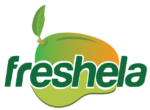
Cashews are not precisely nuts as they are always referred to; they are seeds of the cashew apple, the fruit of the cashew tree. The cashews are shaped like a kidney and hang outside the cashew apple, encased in a hard shell to protect the inner nut.
Cashew nuts are usually a snack but have become a valued ingredient in traditional dishes and new cuisines. With more exploration and research, more cashew nut uses have been improvised.
Cashew products like cashew butter have now become a favorite spread for many. Cashew cheese, chocolate bars, candy, and milk continue growing market demand.
Cashews are well-loved for their health benefits, which are now a significant concern in the health and lifestyle industry. Cashews are made of protein, fiber, vitamins, and healthy fats. The healthy fats in cashews help lower bad cholesterol and help prevent heart diseases.
Besides the health benefits, cashew nuts and their products are also beneficial. For instance, cashew shells contain a liquid that has antibacterial properties and is used to manufacture medicinal products.
The Cashew industry is increasing, and more countries are practicing large-scale production while those whose climate does not support the growth of cashews import from the producing countries. The industry is a new employment and economic growth source for participating countries.
Cashew Price in Norway
In 2021, cashew imports into Norway were worth approximately 14 million US Dollars. Although this decreased from the previous year, it’s still another high-value record.
The sharpest climb was from 2016 to 2017 when the import value rose from about 16 million US Dollars to over 19 million US Dollars.
Here are the total import values of cashews in Norway between 2012 and 2021.

Cashew Nut Price per kg in Norway
The price of one kilogram of raw cashew nuts in Norway costs between NOK 78.41 and NOK 80.19 (US $ 7.16 to US $ 7.32) on the retail market. Cashew nuts cost between $ 5.01 and 5.13 per kilogram at wholesale.
Cashew prices in Norway are steady throughout the year, although they are also affected by production levels and supply rates from the exporting and producing countries.
Because cashews require specific climate and soil conditions, cashew availability is scarce, especially in production countries, which directly affects cashew prices compared to other nuts grown almost everywhere.
The cashew nuts processing is also costly and involves machines and equipment that require financial investment. This processing, packaging, and profit consideration for the retailers also add to the final cost of cashew nuts.
Cashews Norway
Norway imports different cashew nuts, including whole cashews, kernels, cashew pieces, and products. Entire cashew nuts are sold with their shells; they can be roasted or raw.
Cashew pieces are broken cashew nuts that have already been processed and broken into smaller pieces. They are primarily used in toppings, baking, and making soups thick and creamy.
Cashew kernels are the whole cashews without the shells. They are the most common on the markets and are categorized into different grades depending on their sizes, color, and shape.
The most common grades of cashew nuts are W-210, also known as Jumbo nuts and W-240. W-450 is the market’s smallest and cheapest cashew kernel, while W-320 is the most popular and most available.
Cashew Nuts Norway
Cashew nuts are an essential import and export commodity in Norway, with the cashew market providing jobs, businesses, and livelihood for farmers and business people.
Although the Norwegian population is small, the country has one of the fast-growing cashew markets with high consumer demands.
With Norway exploring and expanding the cashew market with new cashew products and experimenting with new flavors and cashew usage, the market future for the cashew industry looks bright and promising.

